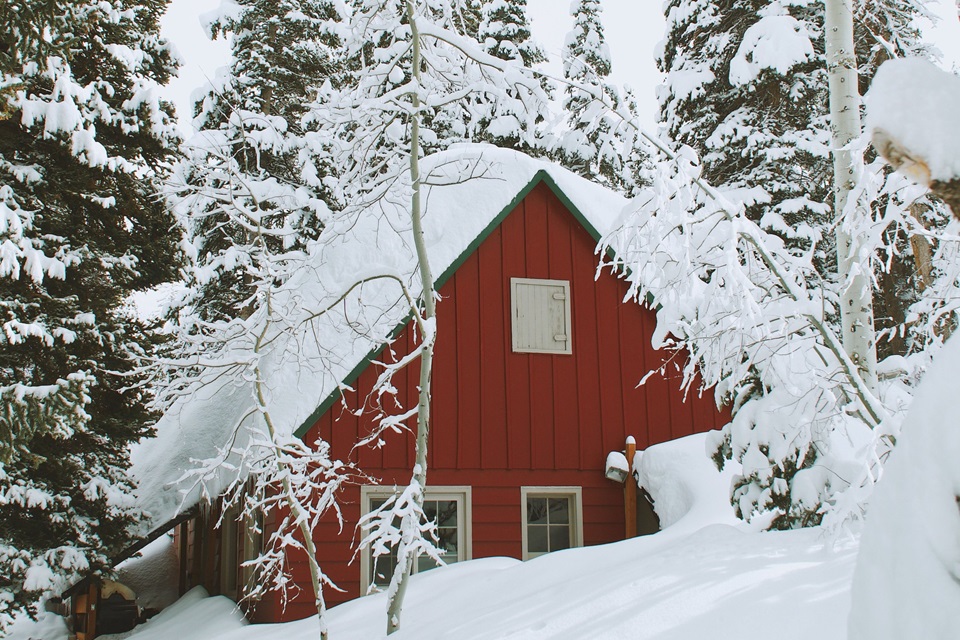Imagine this: a warm, crackling fire lighting up the cozy interior, snowflakes dancing outside a frosty window, and laughter echoing through wooden walls. Winter cabin retreats paint a picture of peace and escape, offering a chance to get back to nature and create lasting memories beneath a starry sky. However, the charm of snug cabins in snowy settings shouldn’t distract from the challenges of winter. Remote spots and unpredictable weather mean you need to prepare carefully and have the right information to guarantee a safe and stress-free getaway.
Before heading into the winter wonderland, careful planning is essential. Research the area you plan to visit, get to know the weather patterns, terrain, and available emergency resources. It’s crucial to inform your loved ones about your travel plans and expected return date, ensuring that someone is aware of your whereabouts in case of unexpected situations.
Table of Contents
Packing Essentials: Your Winter Checklist
Before heading into the snowy wilderness, make sure you’re ready for whatever Mother Nature throws your way. Pack like an experienced adventurer, adding the following to your gear:
- Warm layers: Include base layers, sweaters, fleece jackets, and a waterproof outer shell in case of sudden snowfall.
- Footwear: Opt for sturdy boots with good traction, preferably waterproof, and wear warm socks for cozy evenings by the fire.
- Headwear: Keep the chill away with a warm hat, gloves, and a scarf.
- First-aid kit: Be ready for small cuts, scrapes, and common ailments. Pack essentials like bandages, antiseptic wipes, pain relievers, and any personal medications.
- Emergency supplies: Carry a flashlight, headlamp, spare batteries, a portable phone charger, matches or a lighter, a fire starter, a multi-tool, and a reflective emergency blanket.
- Food and water: Bring enough non-perishable food and bottled water to last a few days longer than your planned stay, just in case the weather makes travel difficult.
- Entertainment: Games, books, and playing cards can provide hours of fun in case the power goes out or you find yourself snowed in.
Keeping The Cabin Safe
Getting the cabin ready requires careful planning too. Ensure that smoke detectors and fire extinguishers are working properly. Proper ventilation for heating devices is essential to prevent carbon monoxide poisoning. Take the time to understand the plumbing and electrical systems, and have alternative lighting sources in case of power outages. Stock up on firewood, propane, and batteries – keep in mind that winter weather can disrupt supply chains, potentially leaving you snowed in for longer than expected.
Once you’re settled in, prioritizing fire safety is crucial. Never leave burning fires unattended, and make sure embers are completely extinguished before going to bed. Dispose of ashes carefully and responsibly, and maintain good ventilation to avoid the silent threat of carbon monoxide. Always supervise open flames, especially when children are around.
Protecting Yourself From The Winter Weather
Winter weather demands respect and awareness. According to a personal injury lawyer in Seattle, it is very important to keep yourself informed about weather forecasts and warnings, and adjust your plans accordingly. Dress appropriately for outdoor activities, layering your clothing to adapt to changing temperatures and unexpected wind chills. In mountainous areas, be cautious of avalanche risks, avoiding slopes during periods of heavy snowfall or rain. If you plan on ice skating or snowmobiling, prioritize safety by investing in proper gear, staying within designated areas, and avoiding solo ventures.
Staying connected in remote locations is crucial. Download offline maps and navigation apps for the area, ensuring you can navigate even without cell service. Carry a charged portable phone charger or power bank, and consider getting emergency communication devices like satellite phones or beacons for added peace of mind. Learning basic wilderness survival skills, such as fire-building and shelter construction, can be invaluable in unforeseen situations.
Respecting the delicate balance of nature is equally important. Store food properly to avoid attracting wildlife, especially bears and deer. Dispose of waste responsibly, leaving no trace of your visit. Remember, you are a guest in this winter wonderland; treat it with the respect it deserves.
Self-Care & Comfort For Fun Times
Maintaining good health during your retreat is a must. Bring any necessary medications or prescriptions, and be aware of symptoms of carbon monoxide exposure, especially if your cabin uses wood-burning stoves or propane heaters. Stay hydrated and limit alcohol intake, as it can affect your judgment in cold weather. Maintain proper hygiene and sanitation, particularly if you’re using outhouses or alternative water sources.
As the last embers of your campfire fade and the moon bathes the snow-covered landscape, remember that a safe and enjoyable winter cabin retreat is built on preparation, awareness, and respect. From navigating winter weather to appreciating the delicate beauty of nature, embracing the snowy scene goes beyond cozy nights by the fire. By prioritizing safety and making informed choices, you can turn your winter escape into a magical adventure, creating memories that will warm your heart long after the snow melts.
So, pack your bags, embrace the adventure, and remember – when nature reveals its wintery beauty, preparedness is the key to unlocking an unforgettable experience.



